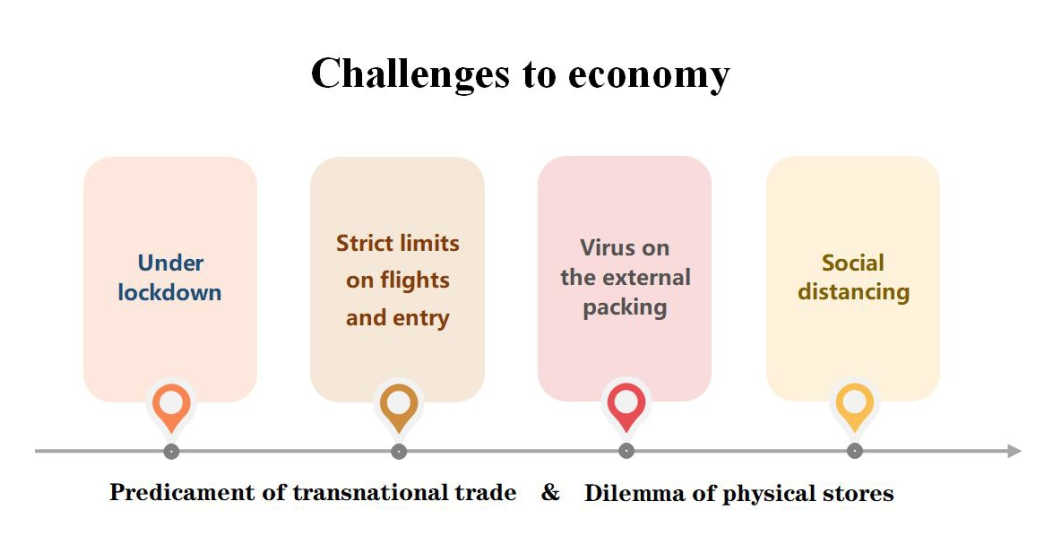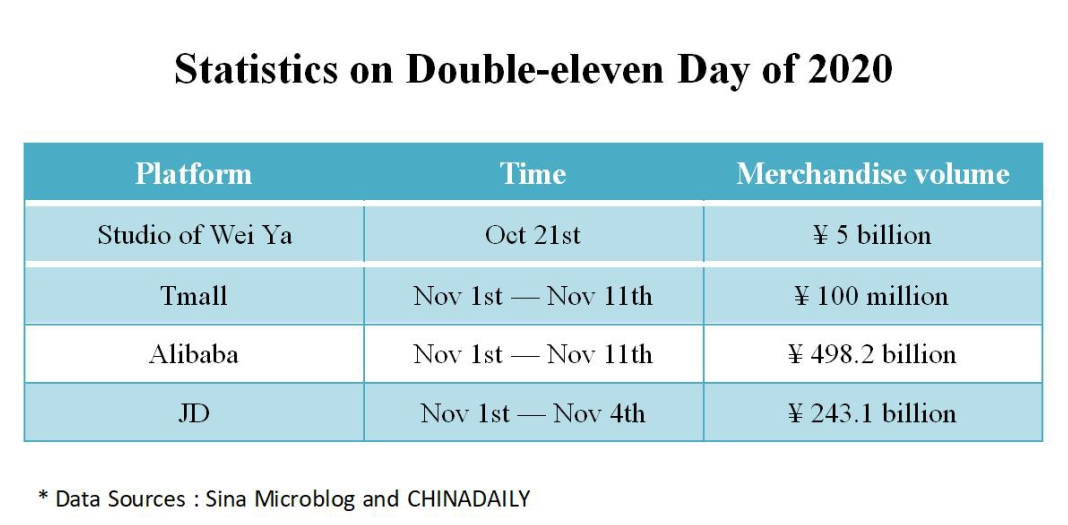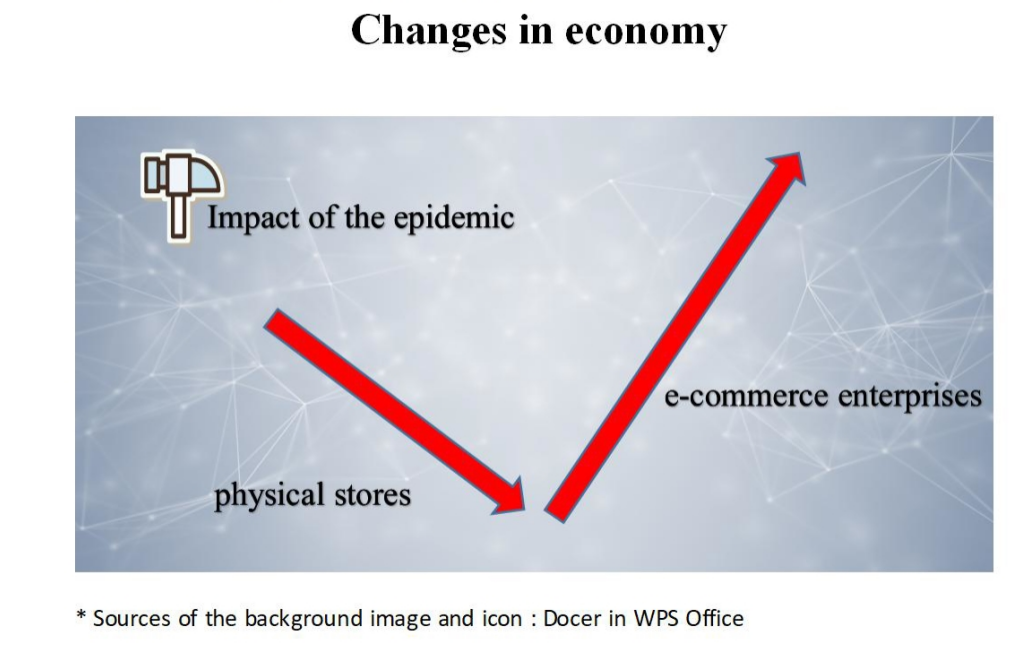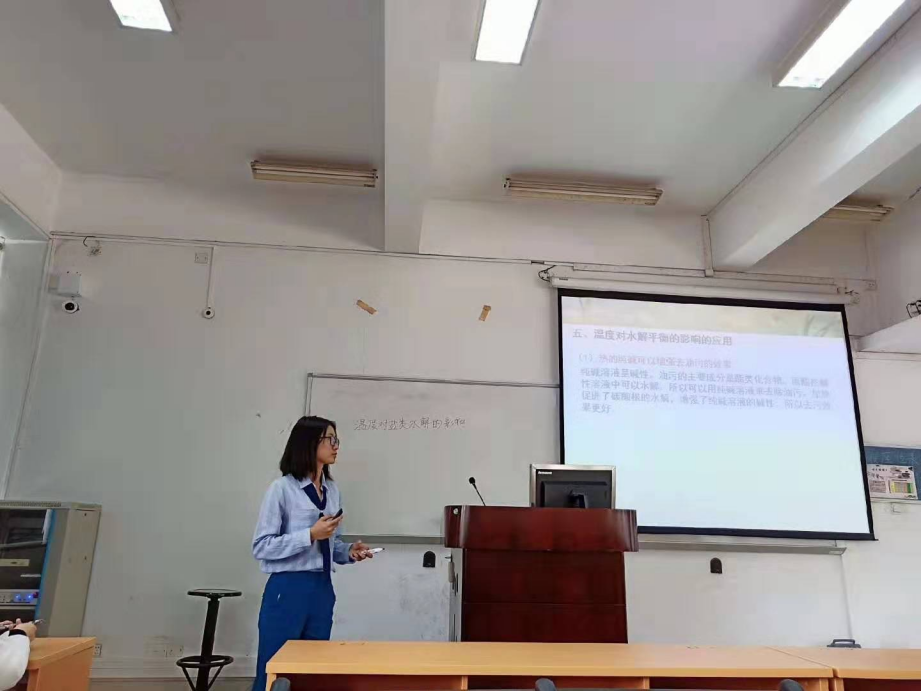
Likes
Editor's Note: Under the theme of “Challenge and Change”, the second English writing contest of SCNU has came to a close with over 280 articles from 28 schools and colleges. We recognize all prize winners for their excellent performance. Awarded winners have been announced (see results), and all winning articles will be published in this column.
-------
By Zhang Xiaotong
The year 2020 is destined to go down in history as an extraordinary record of the human race, significantly in the area of change in the economy both domestically and internationally.
So far there have been numerous variations in this crucial field with the epidemic gradually escalating into the pandemic, followed by a period of stability in a host of regions momentarily. Nevertheless, in the wake of the impact of the coronavirus, an increasing number of torments have struck the economy abruptly, confronting us with an enormous challenge that hasn't occurred for dozens of years.
Initially, the unexpected outbreak of the coronavirus put a multitude of regions at great risk. A small number of epidemic-stricken areas were even in lockdown in a bid to cut off the chain of virus-transmission. Under these circumstances, the transnational trade got bogged down in containment measures.
For instance, over seventy countries set strict limits on international flights and entry, including the United States, United Kingdom and China from the start of the pandemic. This definitely put a brake on the development of commerce. Meanwhile, the external packaging of the imported frozen products has constantly been testing positive for the coronavirus, tremendously menacing merchants at home and abroad. Therefore, on no account should we ignore the predicament of the transnational trade.
Apart from the aforesaid plight between nations, social distancing between individuals has also cast a shadow over the economy. Responding to the call of the government, a majority of citizens make wise choices to forego large gatherings, staying at home for the sake of avoiding to become infected. This absolutely exerts an impact on physical stores like restaurants, amusement parks and supermarkets.
According to official statistics, up to 13,000 Chinese catering enterprises applied for bankruptcy during the first two months of 2020 resulting from the imbalance between revenue and expenses. Of course, there are still a number of physical stores successful in making ends meet or making a profit. Nevertheless, it is undeniable that physical stores have got into a dilemma and face an immense challenges.

There is no doubt that this challenge to brick-and-mortar stores is not only brought by the epidemic, but also caused by e-commerce businesses. In recent years, the e-commerce industry has made incredible advancement and overwhelmed enterprises of various forms.
Currently, with the normalization of the epidemic and the rapid development of technology, nothing can possibly rival the significant position of e-commerce companies. Consequently, I am definitely inclined to treat e-commerce as a precious opportunity rather than a threat towards other forms of businesses. A case in point is the on-line shopping spree on double-eleven day of 2020.
From November 1 to the first 35 minutes of November 11, brands on the business-to-customer platform of Alibaba called Tmall hit 100 million yuan in sales, according to a report by China Daily[1]. Known as an international supermarket, Tmall sells authentic products and thousands of imported items can be purchased on this platform. Therefore, customers who are keen on foreign goods can purchase what they are longing for on Tmall, making amends for the disappointment that they are not allowed to shop abroad temporarily. It is obvious that e-commerce platforms carve out a new way for foreign merchants to tap into our economy. Meanwhile, plenty of enterprises make full use of "revenge buying" and provide special offers for multiple products, which appeals to customers and stimulates consumption.
In addition to the annual shopping spree, new consumption patterns such as direct sales via livestreaming have also become a stimulus to the economy. For instance, Li Jiaqi, an Internet influencer well known among female customers, has set a record for on-line shopping. Before the approach of the double-eleven shopping day, the number of followers on his on-line outlet had reached a hundred million simultaneously, despite the fact that it was late at night.
At the same time, on October 21, the trading volume in the on-line outlet of Wei Ya, another Internet influencer skilled in fashion and shopping, reached a top of five billion, blowing away the dark clouds during the period of epidemic and bringing prosperity to the market. It is inconceivable that so large a sum can be achieved within probably just a few minutes or even a few seconds. Consequently, we can not emphasize too much the importance of impetus that e-commerce platforms bring to the economy in this information era, not to mention their contribution to other significant fields.

In a nutshell, we have witnessed the dynamic procedure of the economy, from downturn to vibrancy, along with the decline of physical stores and the prosperity of e-commerce industry. That is, the noteworthy change in the economy is just like a mixed blessing full of challenges and opportunities, which means billions of people revelling simultaneously in feast and famine.
Absolutely there is no consensus on the question whether physical stores or e-commerce enterprises are superior. Frankly speaking, they are both double-edged swords which must be taken into consideration comprehensively. Nevertheless, there is no doubt that the prevalence of the e-commerce industry is the product of the epidemic and our contemporary society. From my perspective, I sincerely and deeply wish all the present physical stores can have a permanent development.
But if not, why don't they seize the opportunity and follow the tide to try e-commerce? After all, if the merchants master the secrets of e-commerce platforms and cope with the defects prudently, the vast majority of their adverse effects will be wiped out and they shall earnestly look forward to further progress and significant success.

References: [1] He Wei and Fan Feifei, China Daily. Consumers spend big for Singles Day shopping gala [N]. China Daily , 2020-11-12.
What to read next:










